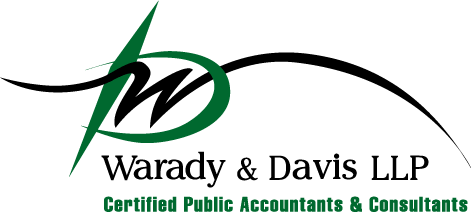Updated 4-6-2021
The American Rescue Plan Act of 2021 (the “Act”), signed by President Biden on March 11, 2021, includes within Section 5003 a $28.6 billion appropriation to establish a Restaurant Revitalization Fund (the “RRF”) to provide tax-free federal grants to food and beverage businesses hard hit by the pandemic.
These grants may be applied to eligible expenses already incurred and for additional expenses over the remainder of the year (or longer if the covered period is extended by the Small Business Administration (the “SBA”)), and are available to entities ranging from food carts to full-service restaurants and tasting rooms.
UPDATE: The SBA announced that applicants for RRF grants will no longer will be required to register with the government on the System of Award Management. The process to get a SAM account can be cumbersome. The SBA also said that it expects to begin accepting applications for the program, which will be first-come, first-served, later this month.
Summary of the RRF and Eligibility
A total of $5 billion of the RRF is set aside for businesses with less than $500,000 in 2019 annual gross receipts, with the remainder to be available for grants in an “equitable manner to eligible entities of different sizes,” with authority granted to the Administrator of the SBA to make adjustments to the distribution of funds based on demand and local market conditions affecting eligible entities.
An eligible grant recipient may be a “restaurant, food stand, food truck, food cart, caterer, saloon, inn, tavern, bar, lounge, brewpub, tasting room, taproom, licensed facility or premise of a beverage alcohol producer where the public may taste, sample, or purchase products, or other similar place of business in which the public or patrons assemble for the primary purpose of being served food or drink.”
Entities that are not eligible for RRF grants include entities that (i) are operated by state or local government, (ii) as of March 13, 2020, owned or operated, together with any affiliated business, more than 20 locations (regardless of whether the entities share a common name), (iii) have a pending application for or have received a Shuttered Venue Operators Grant, or (iv) are a “publicly-traded company” (here meaning any entity that is majority owned or controlled by an entity that is an issuer, the securities of which are listed on a national securities exchange under section 6 of the Securities Exchange Act of 1934 (15 U.S.C. § 78f)).
The term “affiliated business” means a business in which an eligible entity has an equity or right to profit distributions of not less than 50 percent, or in which an eligible entity has the contractual authority to control the direction of the business, provided that such affiliation shall be determined as of any arrangements or agreements in existence as of March 13, 2020.
Size of Grants
Grants are available to eligible entities in the amount of their “pandemic-related revenue loss,” which is based on the difference between 2020 gross receipts against 2019 gross receipts (with alternative calculations available for entities that were not in operation for the entirety of 2019), and reduced dollar for dollar by any amounts received from Paycheck Protection Program (the “PPP”) Loans (aggregated between First and Second Draws thereunder).
The aggregate maximum grant to any entity and its affiliated businesses is $10 million, with a cap of $5 million per physical location.
Priority in Awarding Grants
During the first 21 days during which RRF grants are awarded, applications from eligible entities that are small business concerns owned and controlled by women, small business concerns owned and controlled by veterans, or socially and economically disadvantaged small business concerns will receive priority.
Applicants will be required to submit a self-certification of eligibility for priority with any grant application.
Use of RRF Funds
Grants may be used for a wide variety of expenses “incurred as a direct result of, or during, the COVID-19 pandemic,” including payroll, scheduled mortgage payments (principal and interest), scheduled rent, utilities, outdoor seating construction, supplies (including PPE and cleaning materials), food and beverage expenses (within the scope of pre-pandemic business practice), paid sick leave, operational expenses, and other items in the Administrator’s determination that are necessary to maintain the eligible entity.
The covered period for use of funds means the period from February 15, 2020 through either December 31, 2021 or a later date determined by the SBA no later than two years out from the date of enactment of the Act.
Questions
Please contact your Warady & Davis LLP advisor with your questions at 847-267-9600; info@waradydavis.com.
You can also visit the Warady & Davis LLP COVID-19 Resource Center for a wealth of information on stimulus assistance, new legislation and much more. This information is updated regularly.
SOURCE: SBA
